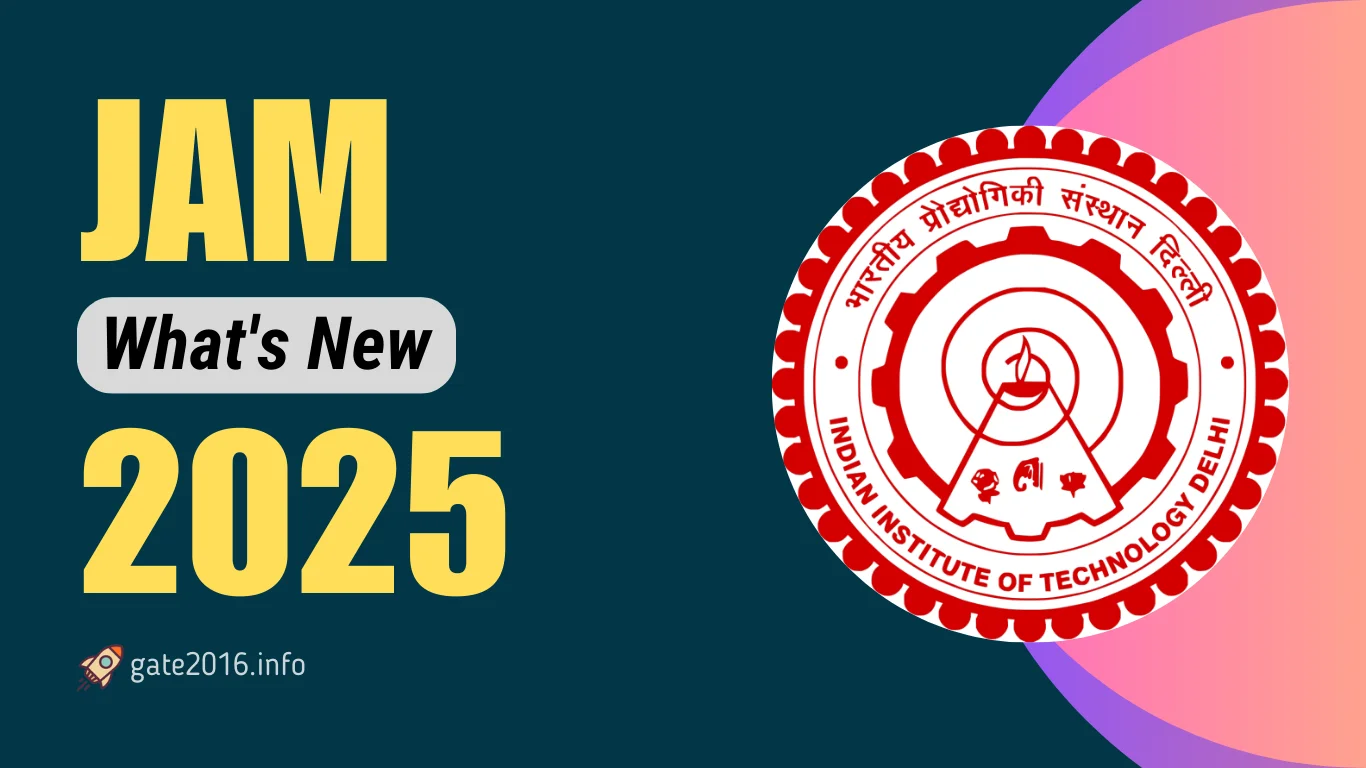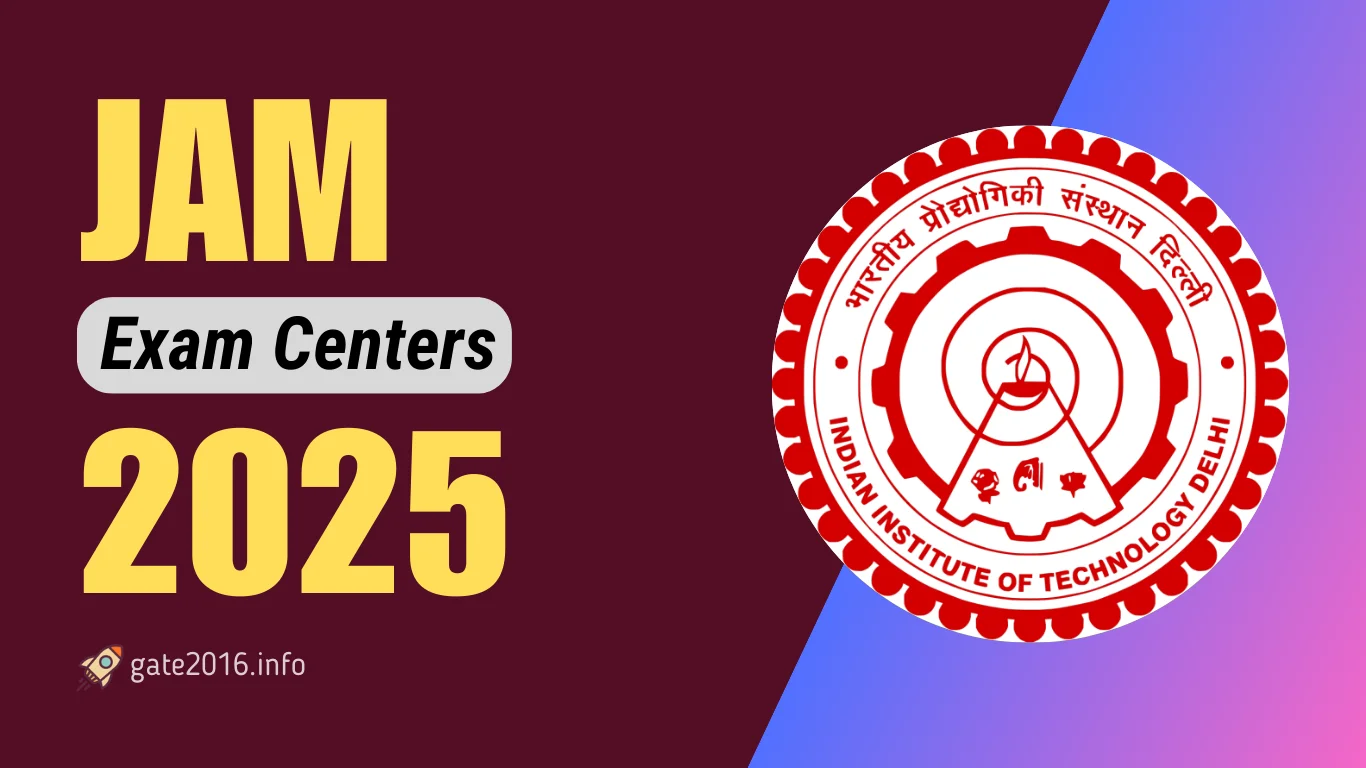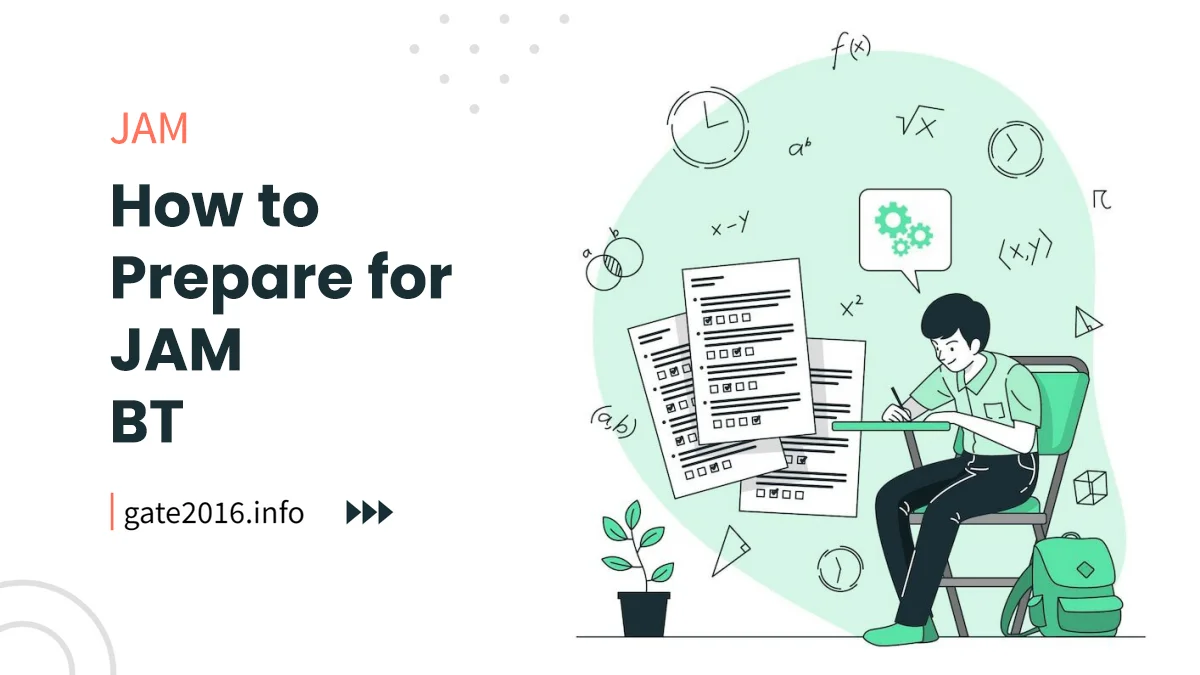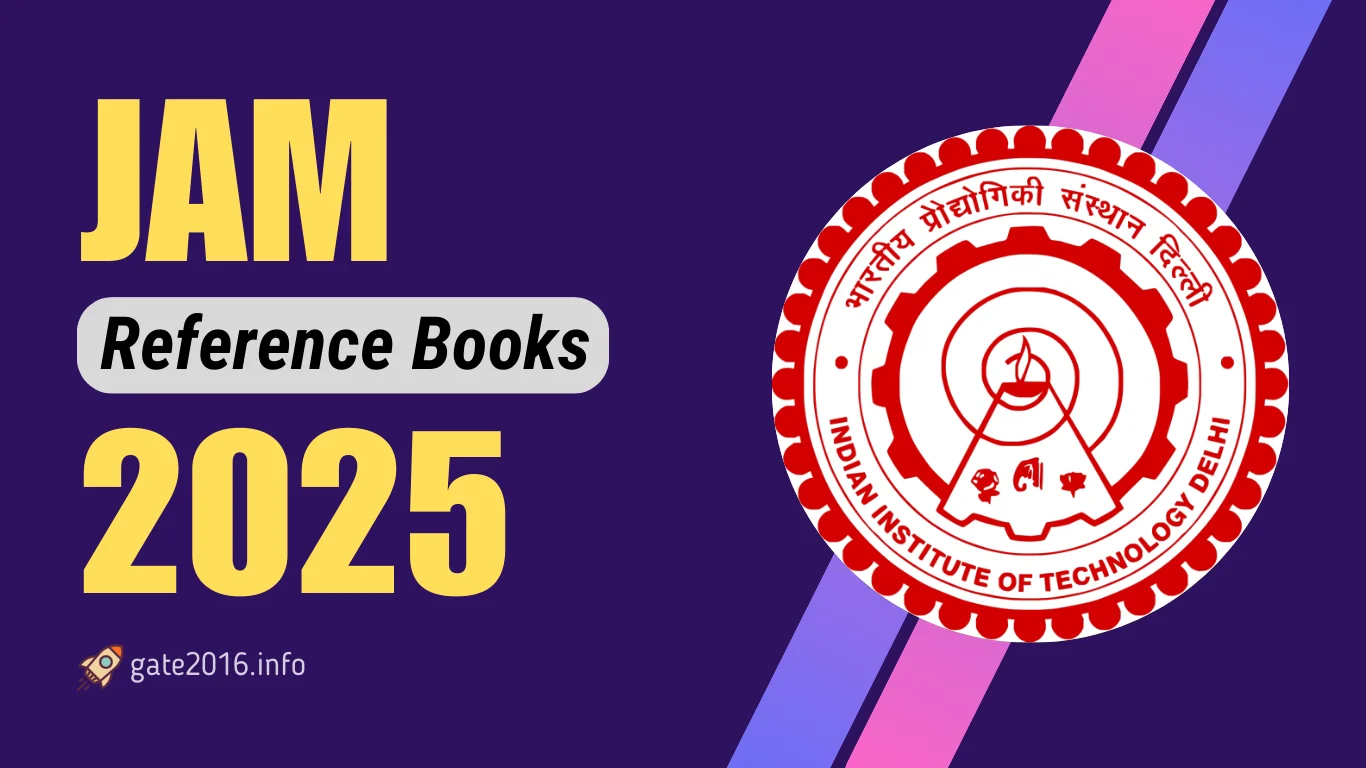Advertisements
Ratings
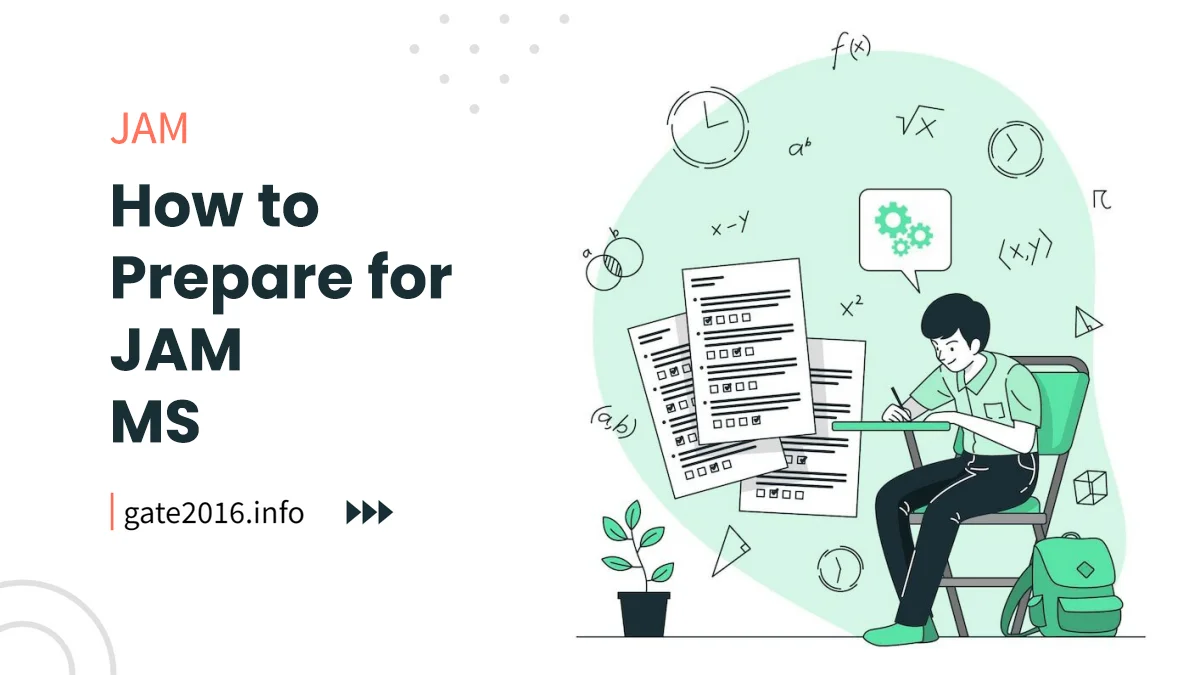
JAM 2024 MS Preparation – The Joint Admission Test for M.Sc. (JAM) is a prestigious national-level examination that opens the doors to higher studies in various fields, including Mathematical Statistics.
Excelling in JAM Mathematical Statistics requires thorough preparation, focused study, and a strategic approach.
This comprehensive guide is designed to help aspiring statisticians prepare effectively for the JAM Mathematical Statistics exam.
Contents
- 1. Understanding the Importance of JAM Mathematical Statistics
- 2. JAM Mathematical Statistics Syllabus Overview
- 3. Developing a Structured Study Plan
- 4. Selection of Study Materials
- 5. Mastering Core Mathematical Statistics Concepts
- 6. Problem-Solving Practice
- 7. Reviewing Previous Years’ Question Papers
- 8. Taking Mock Tests
- 9. Effective Time Management Strategies
- 10. Implementing Revision Techniques
- 11. Staying Informed with Statistical Trends
- 12. Managing Exam Stress
- 13. Final Weeks’ Preparation Strategy
- 14. Approaching Exam Day
- 15. Post-Exam Analysis and Next Steps
- Conclusion: Excelling in JAM Mathematical Statistics
- Additional Resources and References
- JAM Mathematical Statistics Guidance
- JAM Mathematical Statistics Preparation FAQs
- JAM Total Information & Guidance
1. Understanding the Importance of JAM Mathematical Statistics
JAM Mathematical Statistics plays a vital role in shaping the careers of students aspiring to pursue advanced studies in statistics, data analysis, and related fields.
Achieving a good score in this exam is a stepping stone towards joining esteemed institutions for further education.
2. JAM Mathematical Statistics Syllabus Overview
The JAM Mathematical Statistics syllabus covers a wide range of topics, encompassing both theory and practical applications.
Here’s an overview of the main subjects and key topics:
Table 1: JAM Mathematical Statistics Syllabus Breakdown
| Subject | Key Topics |
|---|---|
| Probability | Set theory, Probability spaces, Random variables |
| Distributional Theory | Probability distributions, Expected values |
| Limit Theorems | Laws of large numbers, Central limit theorem |
| Sampling Distributions | Sampling theory, Sampling distributions |
| Estimation | Point estimation, Interval estimation |
| Testing of Hypotheses | Null and alternative hypotheses, Type I and Type II errors |
| Linear Inference | Simple linear regression, Correlation analysis |
| Multivariate Analysis | Multivariate normal distribution, Principal component analysis |
| Stochastic Processes | Markov chains, Poisson processes |
| Applications of Statistics | Real-world applications of statistical methods |
3. Developing a Structured Study Plan
A well-organized study plan is essential for efficient preparation. Here’s a step-by-step approach to creating an effective study plan:
- Assess Your Knowledge: Identify your strengths and weaknesses in different topics.
- Allocate Time: Divide your study hours based on the complexity of topics.
- Consistent Practice: Dedicate time to regular problem-solving and revision.
- Mock Tests: Allocate time for full-length mock tests to simulate exam conditions.
Table 2: Sample Study Plan
| Week | Subjects/Topics | Time Allocation |
|---|---|---|
| 1-2 | Probability, Distributional Theory | 12 hours/week |
| 3-4 | Limit Theorems, Sampling Distributions | 10 hours/week |
| 5-6 | Estimation, Testing of Hypotheses | 10 hours/week |
| 7-8 | Linear Inference, Multivariate Analysis | 8 hours/week |
| 9-10 | Stochastic Processes, Applications of Statistics | 12 hours/week |
4. Selection of Study Materials
Choosing the right study materials is crucial for effective preparation:
Table 3: Recommended Study Resources
| Subject | Books | Online Resources |
|---|---|---|
| Probability | “Probability and Statistics” by Morris H. DeGroot | NPTEL’s Probability and Statistics Course |
| Distributional Theory | “Probability and Statistical Inference” by Robert Hogg | Coursera’s Statistics Courses |
| Limit Theorems | “A Course in Probability Theory” by Kai Lai Chung | edX’s Probability and Statistics Courses |
| Sampling Distributions | “Sampling Techniques” by Cochran & Krejcie | Khan Academy Probability |
| Estimation | “Mathematical Statistics and Data Analysis” by John Rice | MIT OpenCourseWare Statistics |
| Testing of Hypotheses | “Statistical Inference” by George Casella | Coursera’s Statistical Inference Course |
| Linear Inference | “Introduction to Linear Regression Analysis” by Montgomery | NPTEL’s Linear Regression Course |
| Multivariate Analysis | “Multivariate Statistical Methods” by Morrison & Anderson | Khan Academy Multivariate Analysis |
| Stochastic Processes | “Introduction to Stochastic Processes” by Hoel, Port, & Stone | MIT OpenCourseWare Stochastic Processes |
| Applications of Statistics | “Applied Statistics and Probability for Engineers” by Douglas Montgomery | Coursera’s Applied Statistics Courses |
5. Mastering Core Mathematical Statistics Concepts
Strengthening your grasp of core mathematical statistics concepts is essential:
- Thorough Understanding: Develop a deep understanding of probability theory and distributional concepts.
- Statistical Techniques: Grasp various statistical techniques for inference and analysis.
6. Problem-Solving Practice
Regular problem-solving practice is vital for honing your skills:
- Diverse Problems: Solve problems of varying difficulty levels.
- Previous Years’ Papers: Solve past JAM Mathematical Statistics papers to become familiar with the question patterns.
7. Reviewing Previous Years’ Question Papers
Solving previous years’ question papers offers insights into the exam pattern:
Table 4: Benefits of Solving Previous Years’ Papers
| Benefit | Description |
|---|---|
| Identify Patterns | Recognize recurring question types |
| Time Management | Practice managing time during the exam |
| Exam Pattern | Understand the distribution of topics |
| Self-Assessment | Gauge your level of preparedness |
8. Taking Mock Tests
Mock tests provide an exam-like experience and help assess your readiness:
Table 5: Benefits of Taking Mock Tests
| Benefit | Description |
|---|---|
| Simulate Exam Conditions | Experience time constraints and exam pressure |
| Time Management | Improve time allocation for each section |
| Performance Analysis | Identify areas needing improvement |
| Boost Confidence | Build self-assurance before the exam |
9. Effective Time Management Strategies
Efficient time management during the exam is essential:
Table 6: Time Management Strategy
| Section | Recommended Time Allocation |
|---|---|
| Section A (MCQs) | 60 minutes |
| Section B (MSQs) | 30 minutes |
| Section C (NATs) | 30 minutes |
10. Implementing Revision Techniques
Regular revision reinforces understanding and memory retention:
- Structured Revision: Allocate time for revisiting crucial topics.
- Concise Notes: Create summaries and flashcards for quick review.
11. Staying Informed with Statistical Trends
Stay updated with the latest developments in statistics:
- Follow Statistical Journals: Subscribe to esteemed journals for the latest research.
- Participate in Webinars: Attend webinars and conferences to learn about emerging trends.
12. Managing Exam Stress
Effective stress management enhances performance:
- Relaxation Techniques: Practice meditation, deep breathing, and relaxation exercises.
- Balanced Lifestyle: Incorporate physical activity, healthy eating, and breaks into your routine.
13. Final Weeks’ Preparation Strategy
In the final weeks, focus on intensive revision of critical concepts:
- Intense Revision: Allocate more time to challenging subjects and topics.
- Additional Mock Tests: Take extra mock tests to fine-tune your preparation.
14. Approaching Exam Day
Stay calm and approach the exam day with confidence:
- Read Instructions: Carefully read and comprehend question patterns and instructions.
- Time Management: Allocate time according to question weightage and difficulty.
15. Post-Exam Analysis and Next Steps
Evaluate your performance and plan your next steps:
- Performance Evaluation: Identify strengths and areas requiring improvement.
- Future Plans: Consider further studies or careers in mathematical statistics based on your results.
Conclusion: Excelling in JAM Mathematical Statistics
By following the comprehensive strategies outlined in this guide, aspiring statisticians can establish a robust preparation plan for the JAM Mathematical Statistics exam.
Success in this exam paves the way for advanced studies and a promising career in the realm of statistical sciences.
Additional Resources and References
Explore the recommended textbooks, online courses, and practice papers mentioned in this guide for additional study materials and references.
These resources will further enhance your understanding and preparation for the JAM Mathematical Statistics exam.
JAM Mathematical Statistics Guidance
- How to Prepare for JAM Mathematical Statistics: A Comprehensive Guide
- IIT JAM Mathematical Statistics Books 2025
- [PDF] IIT JAM Previous Year Solved Papers – MS – (2023-2007)
- JAM Syllabus for MS 2025: Mathematical Statistics
JAM Mathematical Statistics Preparation FAQs
What is JAM Mathematical Statistics (MS)?
JAM MS is an entrance examination conducted for admission to various postgraduate programs in Mathematical Statistics and related fields offered by Indian Institutes of Technology (IITs) and other prestigious institutions in India.
It assesses candidates' knowledge and understanding of mathematical statistics concepts.
What are the important topics to focus on for JAM Mathematical Statistics preparation?
Key topics to focus on include probability theory, statistical inference, mathematical methods, linear algebra, calculus, and real analysis.
The JAM Mathematical Statistics syllabus covers a wide range of mathematical and statistical concepts.
How should I prepare for the JAM MS exam?
Effective preparation involves creating a study plan based on the JAM syllabus. Use standard textbooks, reference materials, and online resources for each subject.
Practice solving previous years' question papers and sample tests to become familiar with the exam pattern and improve your problem-solving skills.
Focus on understanding concepts and developing mathematical and statistical problem-solving skills.
Are there any recommended books or resources for JAM Mathematical Statistics preparation?
Yes, some recommended books and resources include:
- 'Mathematical Statistics' by Hogg and Craig
- 'A First Course in Probability' by Sheldon Ross
- 'Mathematical Methods' by M. Anthony and N. Biggs
- 'Linear Algebra Done Right' by Sheldon Axler
- Online courses and lecture videos from reputable institutions and platforms like NPTEL and Coursera.
What is the exam pattern for JAM Mathematical Statistics, and how should I approach it?
JAM MS typically consists of multiple-choice questions, multiple-select questions, and numerical answer type questions.
Questions cover various aspects of mathematical statistics, including probability, statistical inference, and mathematical methods.
Start by answering questions you are confident about and manage your time efficiently. For numerical answer type questions, ensure precision in your answers.
A strong understanding of mathematical statistics concepts and rigorous problem-solving skills are crucial for success in the exam.
Recent Posts
- IIT Delhi | JAM 2025 | Official Website
- How to Prepare for JAM Chemistry: A Comprehensive Guide
- How to Prepare for JAM Biotechnology: A Comprehensive Guide
- How to Prepare for JAM Mathematics: A Comprehensive Guide
Related Tags
How to prepare for jam mathematical statistics pdf 2025, How to prepare for jam mathematical statistics quora 2025, How to prepare for jam mathematical statistics reddit 2025, how to prepare for iit jam mathematical statistics 2025, iit jam mathematical statistics syllabus 2025, iit jam mathematical statistics notes pdf 2025, best books for iit jam mathematical statistics 2025, iit jam mathematical statistics question papers with 2025
| IIT JAM Guide Books |
JAM Total Information & Guidance
Click below given links to get further information.



